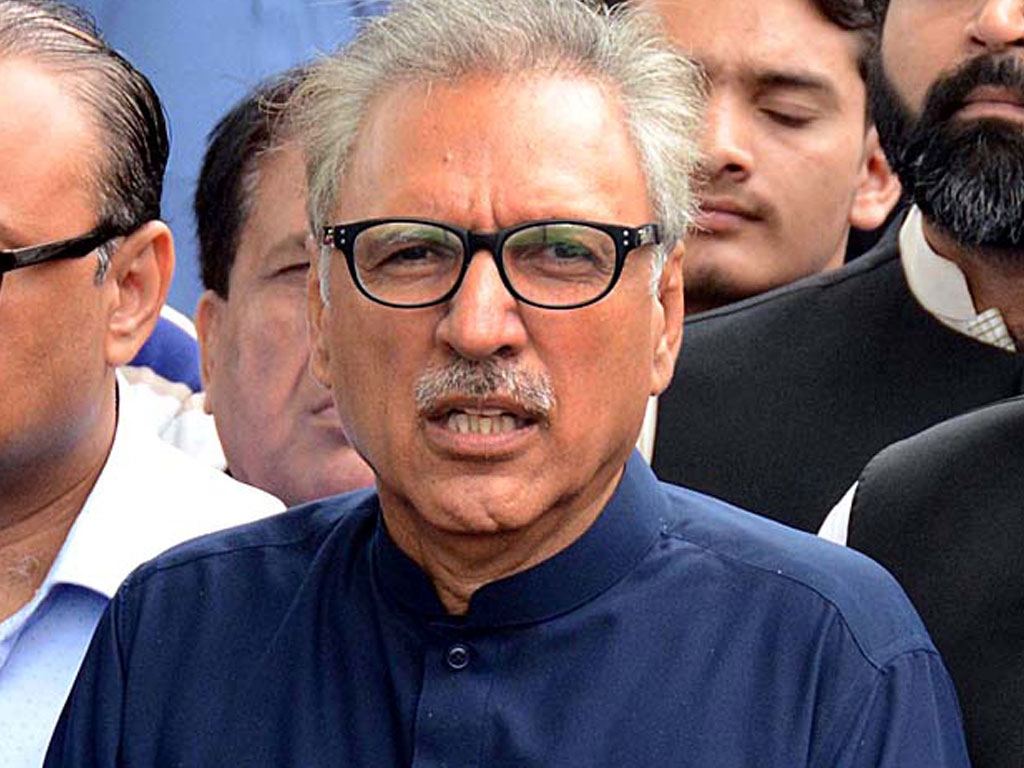
Under Article 56 of the Constitution the President "may" address either House or both Houses assembled together, but he is under constitutional obligation to address a joint session of Parliament at the commencement of each year, and also inform it of the "causes of its summons". That is to be then followed by a discussion on the subject matter of his address. President Arif Alvi was on this assignment on Thursday, and it didn't go as smooth as the Constitution envisages. The Opposition treated him as partisan and created ruckus, reminding one of such instance when the late Benazir Bhutto tried to shout down the then president Ghulam Ishaq Khan with "Go Baba Go" slogan. But the politically astute Baba persevered, and so did President Alvi. Perhaps, this ugly incident could have been averted; the Opposition had asked for production orders of four MNAs, including former president Asif Ali Zardari and ex-prime minister Shahid Khaqan Abbasi. They are in detention but so far they are only accused and therefore continue to be members of the National Assembly. Unbelievably, the Speaker didn't foresee this eventuality, and exposed the Head of State to the Opposition's tumultuous ridicule. Of course, his address was a reflection of the government's point of view, and like the Queen's address to the Commons, it had to be so. His was a comprehensive assessment of a slew of challenges and how the government tackled them. However, thanks to the media what the Opposition tried at blocking at the joint session of parliament did reach people.
In his address, the President dealt with nearly all the challenges the Imran Khan-led coalition government faced over the outgoing year, but the topics on which he was more elaborate were the situation in occupied Jammu & Kashmir in the wake of scrapping of Article 370 by New Delhi, the national economy and the government's commitment to do its best to recover the space lost over many years. Of particular interest to an otherwise politically neutral person is the President's sharp focus on issues like technology-driven knowledge economy, population explosion, neglect of agricultural potential, need to update laws for speedy justice, Dr Sania's Esaas programme, overseas Pakistanis, climate change and Pakistan's nuclear assets. On these relatively less explored fields, he offered quite a few instructive guidelines. "I would like to emphasise that it is essential for our economic stability and growth that we focus on technology-driven knowledge economy, so that Pakistan can compete with the developed nations in the Fourth Industrial Revolution," he told the joint session, adding that we need to familiarize our youth with the computer-assisted new norms of work and life. For fuller exploitation of country's agricultural potential the farmer should be provided inputs like pesticides, fertilisers and implements at reasonable cost. He also described overseas Pakistanis as an asset, and asked the government that "hurdles in transmission of money through banking channels should be removed immediately".
The Opposition in an elected house is supposed to oppose everything and propose nothing. To that extent the Opposition's protest as the president spoke to the joint session appears to be justified, but that protest must be by way of asking searching questions and offering counter-proposals. Here, the Opposition was not even ready to listen; what to say of counter-proposals. If the Opposition doesn't agree with the President's assessment and contention it should take to the floor and make its point. In parliamentary governments, the Head of State may from time to time summon parliament and give his or her perspective on national issues. By refusing to hear the President the Opposition has in fact insulted the parliament. Nobody expects the Opposition to agree with the Head of State's inaugural address, but nobody then also say that he should not be heard in respect and contested in the follow-up discussion in the joint session. If the Opposition doesn't agree with President Alvi's takes on various moves and policies of the Imran Khan government, and for that it has plausible reasons, then it has the opportunity to offer its case. But for this there got to be a debate and not the deafening ruckus. Hopefully, the Opposition in parliament would play its constructive role as government-in-waiting, and the Speaker retains its image as a neutral umpire.
